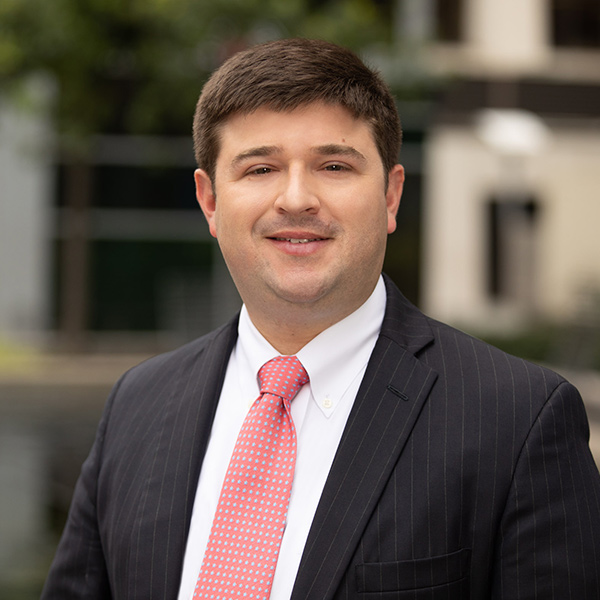
Partner Amie Carmack 
Attorney Hank Gates
On Saturday, March 14, 2020 the United States House of Representatives passed H.R. 6201, the Families First Coronavirus Response Act (the “Act”), which provides for emergency supplemental appropriations to address the effects of COVID-19, including an expansion of the Family and Medical Leave Act (FMLA) coverage (The Emergency Family and Medical Leave Expansion Act) and paid sick leave (The Emergency Paid Sick Leave Act).
Then, on Monday, March 16, 2020 the House substantially narrowed the employer leave requirements of the Act, to assure its negotiated passage in the Senate.
Yesterday afternoon, Wednesday, March 18, 2020, the Senate passed the Act without amendment, and last night, President Trump signed it into law.
History and text of the Act can be found here: https://www.congress.gov/bill/116th-congress/house-bill/6201. The Act becomes effective within 15 days after the President’s signature, on a date to be determined by the Secretary of the Treasury, and currently is set to expire on 12/31/2020.
Divisions C and E of the Act require that employers with fewer than 500 employees (with some exceptions) provide eligible employees Public Health Emergency Leave and Emergency Sick Leave for qualifying reasons related to COVID-19.
Division G of the Act provides corresponding tax credits to offset some of the costs of providing the paid leave required by the Act.
Here are some quick points for your planning:
The leave requirements of the Act (Divisions C and E) apply to private employers with fewer than 500 employees.
- The United States Department of Labor (DOL) is authorized to issue regulations exempting the following from coverage by the Act with respect to Public Health Emergency Leave and Emergency Sick Leave: (i) certain health care providers and emergency responders and (ii) employers with fewer than 50 employees who can show that compliance would jeopardize the viability of the business as a going concern. The DOL is expected to issue such regulations immediately.
- The 500-employee threshold likely would be subject to the “integrated employer” or “integrated enterprise” doctrine, under which the operations of two or more employers can be so intertwined that they are treated as a single employer for purposes of both coverage and liability under federal labor relations and civil rights statutes. In determining whether two are more entities are an integrated employer, courts consider four overarching factors: (1) the degree to which the entities share common management; (2) the degree of interrelation between the operations of the two entities; (3) whether there is centralized control of labor relations; and (4) the degree of common ownership or financial control over the entities.
Public Health Emergency Leave under FMLA. Division C of the Act, The Emergency Family and Medical Leave Expansion Act (“FMLEA”), expands the Family and Medical Leave Act (FMLA) to provide “Public Health Emergency Leave” as a new category of leave under the FMLA. These new leave requirements(i) cover employers with fewer than 500 employees (with some exceptions, see below); (ii) are available to employees who have been employed for at least 30 days; (iii) allow those eligible employees to use FMLA leave (which provides up to 12 weeks of leave, with job protection for most eligible employees) for qualifying reasons in the case of “a public health emergency” (which is defined as an emergency with respect to COVID-19 declared by a federal, state or local authority); and (iv) to provide that after the first 10 days of FMLA leave used for this purpose the leave must be paid at a rate of two thirds of the employee’s regular rate of pay for the number of hours the employee would otherwise have been scheduled to work, not to exceed $200 per day or $10,000 in the aggregate.
- An employer of an employee who is a health care provider or an emergency responder may elect to exclude such employee from Public Health Emergency Leave.
- Qualifying reasons for Public Health Emergency Leave includes situations where an eligible employee is unable to work (or telework) due to a need for leave to care for the employee’s child if the school or place of care has been closed, or childcare provider is unavailable because of a public health emergency.
- An eligible employee may elect to (but may not be required to) substitute any accrued paid leave for unpaid Public Health Emergency Leave.
- Eligible employees who take Public Health Emergency Leave must be restored to their same position or an equivalent position after the leave, with some exceptions for employees of employers with fewer than 25 employees.
Emergency Paid Sick Leave. Division E of the Act, The Emergency Paid Sick Leave Act, mandates that covered employers provide employees up to 80 hours of paid sick leave, pro-rated for part time employees (“Emergency Paid Sick Leave”) for qualifying reasons related to COVID-19.
- Employees of covered employers are eligible to take Emergency Paid Sick Leave for qualifying reasons regardless of how long they have been employed by the employer; provided that an employee who is a health care provider or emergency responder may be excluded at the employer’s option. An employer cannot require an eligible employee who qualifies for Emergency Paid Sick Leave to search for or find a replacement worker as a condition of taking the leave.
- Qualifying reasons for Emergency Paid Sick Leave include (i) government mandated quarantine of an employee or an individual they are caring for; (ii) self-quarantine on advice of a healthcare provider, for an employee or an individual they are caring for; (iii) because of the employee’s symptoms of COVID-19 and seeking a medical diagnosis; (iv) childcare of the employee’s child due to school or daycare closure or unavailability; and (v) other substantially similar situations specified by the Secretary of Health and Human Services.
- Employees who take Emergency Paid Sick Leave for qualifying reasons will receive full pay in the case of their own qualifying condition, and two-thirds pay if caring for another individual, not to exceed $511 per day or $5,110 in the aggregate in the case of the employee’s own qualifying reason, and $200 per day or $2,000 in the aggregate for caring for an individual with a qualifying reason or for reasons specified by the Secretary of Health and Human Services. An employer may not require an employee to use other paid leave provided by the employer before the employee uses Emergency Paid Sick Leave.
- Employers may not satisfy Emergency Paid Sick Leave requirements by pointing to other paid leave policies or benefits, as the Act specifically says it is not intended to diminish any rights or benefits provided by an existing employer policy. However, the amendments to the Act removed a provision that would have prevented employers from changing their current policies and benefits in response to the Act.
Tax Credits. Employers will be able to receive a credit against their Employer Social Security Tax in the amount of 100% of qualified leave wages paid pursuant to the Act, up to certain daily and aggregate limits.
The Act is not retroactive. Time off taken before the effective date of the Act is not covered by the Act. Therefore, employees are not entitled to payment under the Act for such absences, and employers receive no credit against the Act’s requirements.
Because the COVID-19 pandemic is a fluid situation, and because risks can be presented in a myriad of ways, it is important to analyze each situation on a case-by-case basis, to determine the appropriate course of action, rather than trying to implement hard and fast rules in advance.
If you need help with your planning or working through scenarios that present themselves in your workplace, we are here to help. For assistance, please contact Morningstar Law Group Partner, Amie Flowers Carmack, (acarmack@morningstarlawgroup.com or 919.590.0394) or Associate Attorney Hank Gates (hgates@morningstarlawgroup.com or 919.590.0393).
